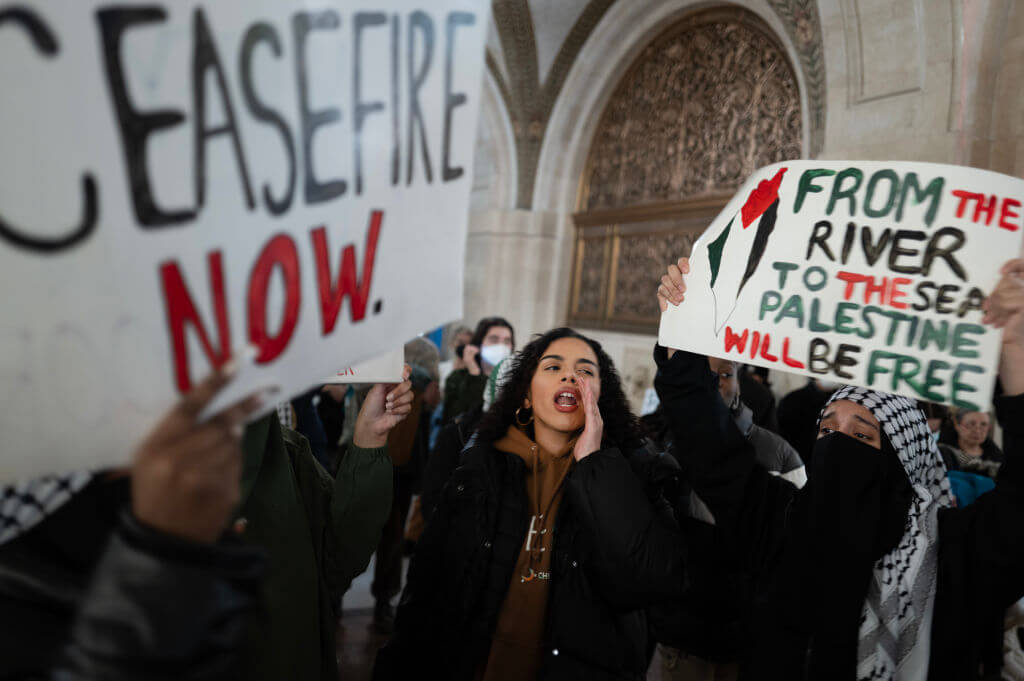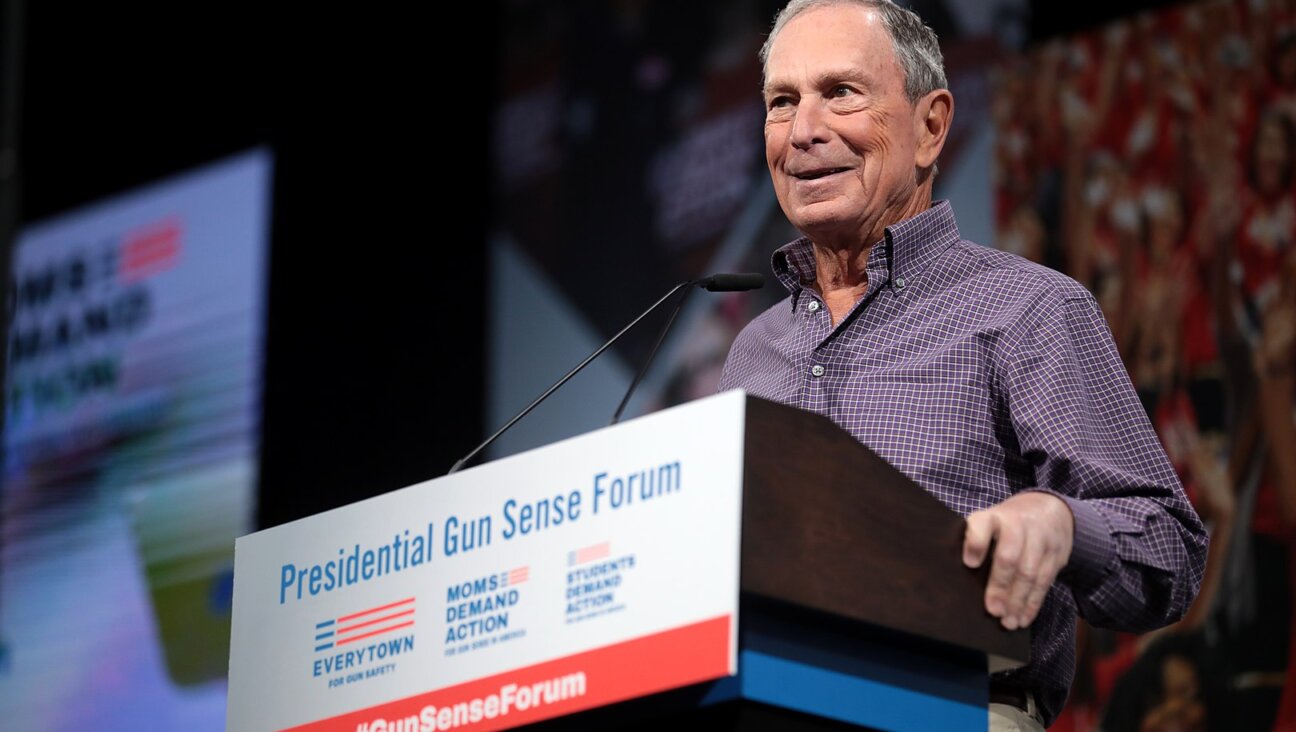Chicago council votes for a cease-fire, making it the largest city to endorse one
The Chicago City Council’s sole Jewish member called it a one-sided resolution for failing to call for Hamas’ elimination

Pro-Palestinian demonstrators rally in the lobby of Chicago’s City Hall while the city council debates a resolution calling for a cease-fire in the war between Israel and Hamas on January 31, 2024. Photo by Getty Images
By the narrowest of margins, the Chicago City Council voted to call for a permanent cease-fire in Gaza, becoming the largest city in the nation to pass such a measure.
Mayor Brandon Johnson cast the tie-breaking vote after 23 members voted in favor and 23 against.
At least 47 cities across the U.S. have passed resolutions calling for a halt to the fighting in the war between Israel and Hamas — including several in states crucial for President Joe Biden’s re-election bid, according to Reuters. San Francisco’s City Council recently voted for a “sustained” cease-fire.
The resolution in Chicago, home to the nation’s largest Palestinian community and host city for the Democratic National Convention this summer, is modeled after a non-binding measure passed by the United Nations General Assembly in December, which the U.S. opposed. It calls on Biden and Congress to “facilitate a lasting peace in Gaza starting with a permanent ceasefire to end the ongoing violence.”
Israel’s military campaign in Gaza — a response to Hamas’ Oct. 7 attack in Israel, which killed more than 1,200 people and kidnapped 240 — has resulted in more than 26,000 deaths, according to the Hamas-run health ministry in Gaza. Recent polls show growing opposition to the war, now in its fourth month, particularly among young and non-white voters.
Biden, a Democrat, has angered many in his party for failing to support an immediate and permanent cease-fire. He has instead called for “humanitarian pauses” in the fighting to allow for the release of hostages and the delivery of more humanitarian aid to Gaza population. Secretary of State Antony Blinken Tuesday said the administration is “hopeful” that Israel and Hamas are nearing an extended truce.
A divided chamber over the Israel-Hamas war
Mayor Johnson, who supports the resolution, ordered the chamber cleared ahead of the vote and following repeated disruptions from the crowd during a heated public comment session. Among those at the meeting was the Rev. Jesse Jackson, the activist and former presidential candidate, who Brandon acknowledged at the meeting’s start.
Debra Silverstein, the 50-member council’s only Jewish member, said she opposed the measure, calling it a “biased, one sided resolution” because it does not single out Hamas for the Oct. 7 attack or call for elimination of the terror group, which rules Gaza.
“We all want peace, but it’s vital to understand what caused the conflict,” she said in remarks ahead of the vote. “How do you support a resolution that allows a terrorist regime to stay in power so it can continue to attack the world’s only Jewish state, a democratic state with a 20% Muslim, Christian population?” she asked her colleagues.
Silverstein also faulted Johnson for failing to broker a compromise on a more balanced resolution that all on the council could have supported. Several on the council had suggested amending the resolution before the vote, including the inclusion of a call for the immediate release of all hostages taken by Hamas and to the elimination of its ability to attack Israelis and endanger Palestinians.
“You need to speak on behalf of our entire city,” Silverstein said to Johnson. ”We could have used you as a unifier here.”
Rossana Rodriguez Sanchez, one of the original sponsors, maintained that the call for a cease-fire is conditioned on the release of all hostages.
Chicago public schools students on Tuesday walked out of class to show support for a cease-fire. They gathered outside the council chamber and chanted “ceasefire now!” and “Free Palestine!” Johnson said in an interview he supported the students for “exercising their constitutional rights to be able to speak out and speak up for righteousness and speak out against injustice.”
Illinois Gov. B Pritzker, who is Jewish, said the resolution won’t “have any real impact.”
A message from our Publisher & CEO Rachel Fishman Feddersen

I hope you appreciated this article. Before you go, I’d like to ask you to please support the Forward’s award-winning, nonprofit journalism so that we can be prepared for whatever news 2025 brings.
At a time when other newsrooms are closing or cutting back, the Forward has removed its paywall and invested additional resources to report on the ground from Israel and around the U.S. on the impact of the war, rising antisemitism and polarized discourse.
Readers like you make it all possible. Support our work by becoming a Forward Member and connect with our journalism and your community.
— Rachel Fishman Feddersen, Publisher and CEO





















